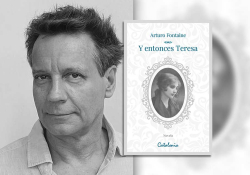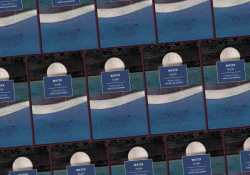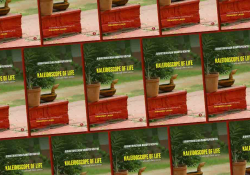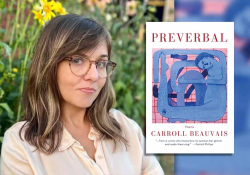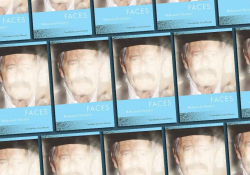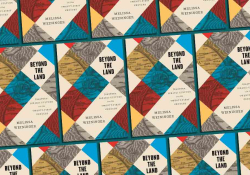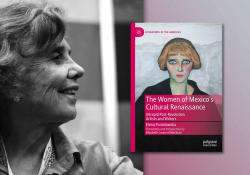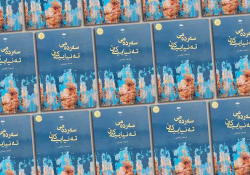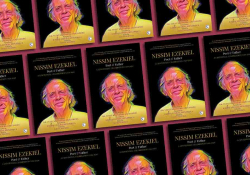Seeking a Promised Humanity through Geopolitical Divisions: Gili Haimovich’s Promised Lands
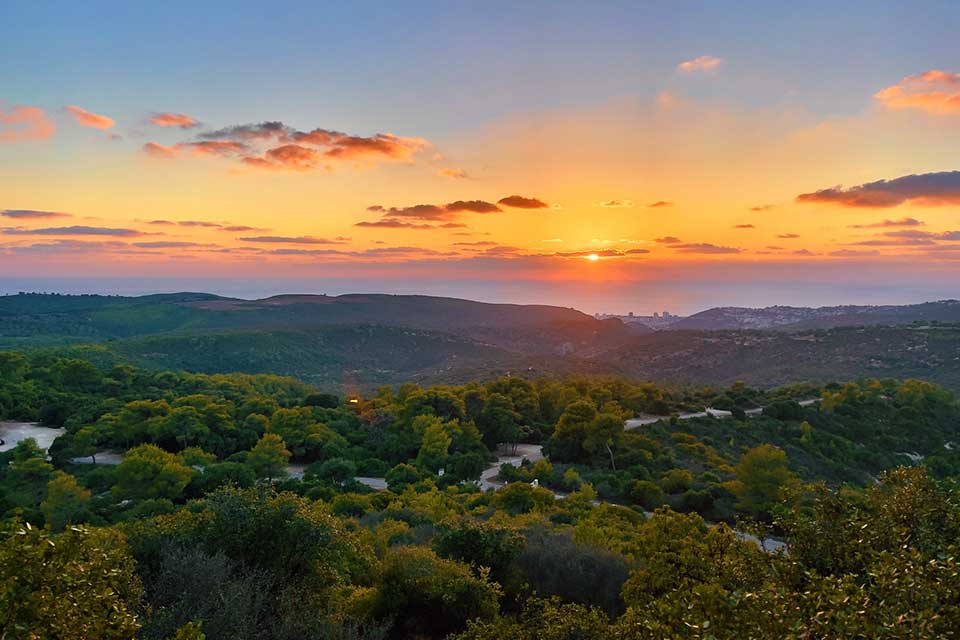
 Fahredin Shehu writes of Gili Haimovich’s Promised Lands (Finishing Line Press, 2020), “This book communicates globally giving more than a single book of poems may offer. There is her origin and cultural/spiritual heritage, her place and everyday life, her travels to distant lands and rich geography, her travels to her inner world and all that is so craftily and beautifully intertwined like peptides on the human DNA.” This statement, taken from a review at fekt.org, reflects not only upon the book itself but upon the global human heritage. Promised Lands is a collection of poetry that bridges the author’s soul division between Hebrew and English, and between cultural crosscurrents. The “lands” of the title are not simply physical barriers between cultures but spheres of the soul guided by language and culture.
Fahredin Shehu writes of Gili Haimovich’s Promised Lands (Finishing Line Press, 2020), “This book communicates globally giving more than a single book of poems may offer. There is her origin and cultural/spiritual heritage, her place and everyday life, her travels to distant lands and rich geography, her travels to her inner world and all that is so craftily and beautifully intertwined like peptides on the human DNA.” This statement, taken from a review at fekt.org, reflects not only upon the book itself but upon the global human heritage. Promised Lands is a collection of poetry that bridges the author’s soul division between Hebrew and English, and between cultural crosscurrents. The “lands” of the title are not simply physical barriers between cultures but spheres of the soul guided by language and culture.
However, Debashish Parashar writes in Verseville, “While reading poems like ‘Into’ and ‘The Promised Wasteland,’ it is convenient to infer that the Promised Land is actually a barren land, ‘a desert,’ ‘a wound,’ a land of ‘beautiful waste,’ as well as ‘prohibited’ and ‘inaccessible’ wasteland. There is hardly any ambiguity regarding the fact that the poet is referring to Zion, the modern state of Israel or the Promised Land of Moses.” The importance of the physical space is necessary to delineate. One cannot have culture without geophysical space to cultivate it. The “promised lands” in Haimovich’s collection have twofold meaning, but the poet herself expresses doubts concerning her relations to those meanings.
The “promised lands” in Haimovich’s collection have twofold meaning, but the poet herself expresses doubts concerning her relations to those meanings.
In “Snow-white” she writes, “The winter has eaten our background. / In this nothingness, longing has no echo.” The intonations of the poem are reminiscent of Russian poet Anna Akhmatova whose mourning and loss are ever-present in her works. The seasons play an important role in developing themes of loss, ambiguity, and doubt. Winter and fall are seasons of impeding grief and forgetfulness. “You are going to leave me, naturally, just like / Leaves leaving the tree,” she writes in “Leaves” and then intones the cruelty of nature: “Then the spring will force me / To show my buds again.” Nature follows a cycle that human beings do not control even though we delude ourselves that it is our power to force dominion over it.
The later poems such as “Exposed Roots” and “It Shows” remind readers that exposure makes us fragile. We are no more fragile than when exposed as fragile, impotent creatures. Nature herself seems burdened with this vulnerability in Haimovich’s poems.
Even though these are Evergreens,
We never look at their tops.
We set our eyes at the height of the cement
A crawling baby’s level.
(“Exposed Roots,” p. 73)
In these lines, Haimovich reminds the reader through personal reflection that beauty surrounds us in the land daily, but we forget to appreciate it. A “Promised Land” may well be a space where one may forget the nature of existence and seek truth through such beauty.
“Gazelles Crossing the Road in Nes Ziona” suggests that human efforts to signify within their spaces leads to contradiction. The poem tells us that Nes Ziona means the miracle of Zion and further tells us that children run down hills at the sound of sirens in this space. However, we do not see gazelles. This could be a sharp sociopolitical statement about the current existential crisis of the modern state of Israel and the priorities the sign suggests. The problem of being human is in recognizing oneself in one’s own enemy both on the field and in life itself.
These poems frequently remind us that we are in a state of becoming, a flux that struggles with an ideal being.
These poems frequently remind us that we are in a state of becoming, a flux that struggles with an ideal being. We have certain ideas of who we should be, but we fail those ideas. Something within the world itself seems to violently hate humanity. “‘Becoming a Woman’” reminds the reader of the difficulty and beauty of being female in a world so ill defined. In context of the poem, the title suggests that learning to accept oneself is how one “becomes.” Since becoming is a state and not an existence itself, we are flooded with expectations and demands that lead to misapprehensions. Such are standards of beauty that anticipate control of a woman’s body.
The poet defines herself within a matrix of languages and cultures. Postcolonial English political reality may bridge cultures, but it does not have the final say as the poet navigates her truest self through Hebrew. “Colonized” reminds us that the English colonial history prepared us for world culture, as the internet made way for universal communications. The “drowning” in the poem is reminiscent of T. S. Eliot’s The Wasteland where the merchant drowns in part 3. The drowning of the merchant signifies the loss of meaning in data-driven, merchandise-laden societies. Meaning itself is lost, and learning to map reality becomes ever more tedious and fruitless.
Promised Lands offers a glimpse into how a poet may feel concerning the world stage as it faces more equivocations, not less. As Parashar writes concerning the personal touches in the poetry, “The poet’s imagination confidently straddles along those lands, erasing frontiers, borders and binaries.” Promised Lands teaches us to map those equivocations through deepened personal reflections. Poetry as an art should lead to water, but as the saying goes it cannot make us drink.
Houston
When you buy a book using our Bookshop Affiliate link on this page, WLT receives a commission. Thank you for your support!

